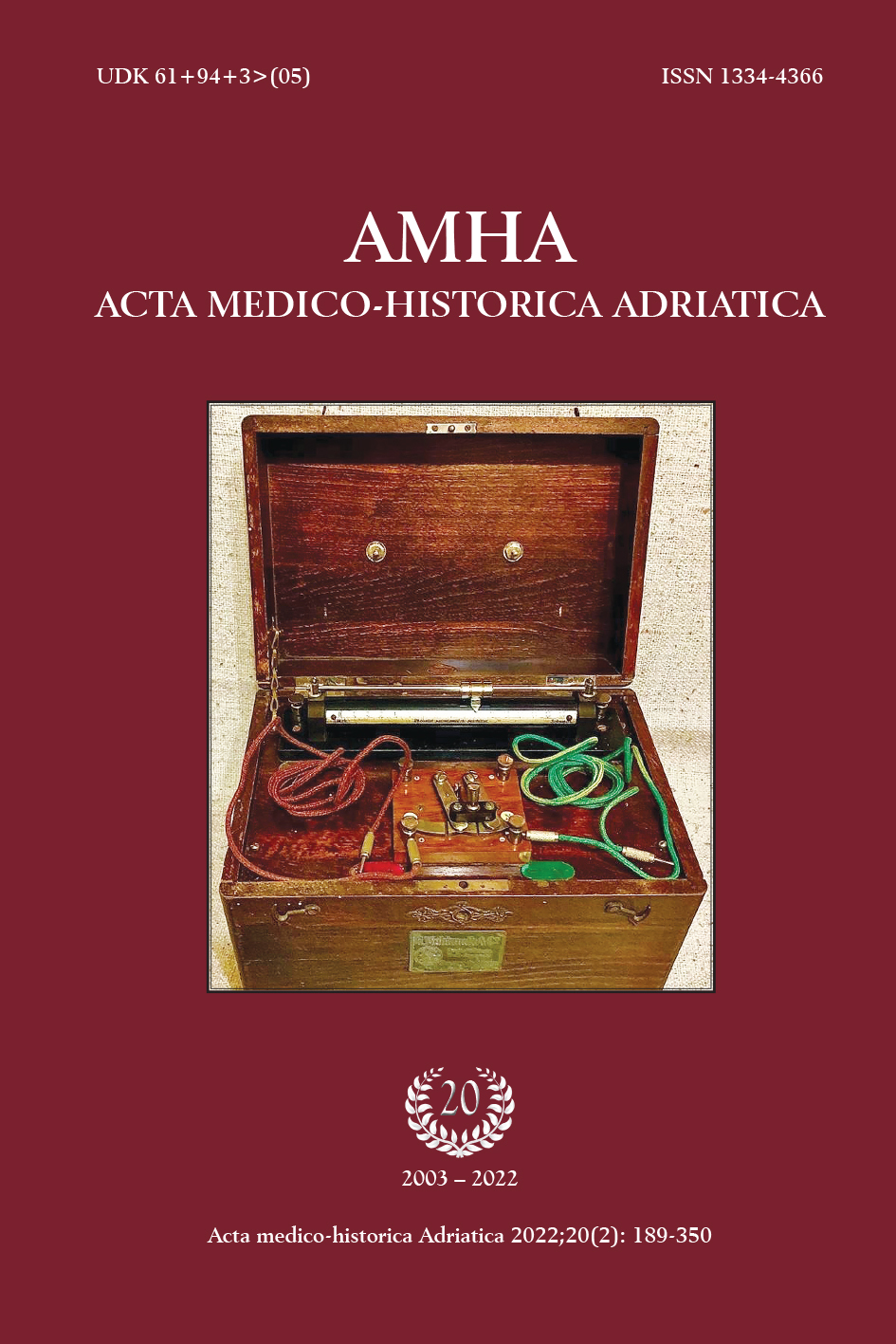THE “NEAPOLITAN SCHOOL OF ELECTROTHERAPY” BETWEEN THE LATE NINETEENTH AND THE FIRST DECADES OF THE TWENTIETH CENTURY
Keywords:
Electrotherapy, Electrical medicine, Neurology, Psychiatry, Oncology, Quack medicineAbstract
https://doi.org/10.31952/amha.20.2.8
Electrotherapy is the use of electrical energy as a medical treatment. In the nineteenth century, the “golden age” of electrotherapy, the development of this discipline was part of a historical-scientific context characterized by the affirmation of neurology as an autonomous branch and, finally, detached from psychiatry. After a period of limited scientific interest and development, in the second half of the 20th century, electrotherapy underwent a revival. Nowadays, the use of electrotherapy has been researched and accepted in various fields of medicine, including but not limited to rehabilitation, neurology, pain management, and oncology.
From its first applications, electrotherapy joined neurology which used it for both diagnostic and therapeutic purposes. In Italy, several scientists carried out experiments on the subject, and an important contribution to the development of the discipline was provided by the “Neapolitan school of electrotherapy”. This improvement was made above all by Francesco Vizioli (1834- 1899) and his pupil Francesco Paolo Sgobbo (1860-1936). Despite these premises, however, the decline of electrotherapy as an autonomous science soon came. Meanwhile, radiology, associated initially with electrotherapy, developed rapidly. When Mario Bertolotti (1876- 1957), former professor of Radiology at the University of Turin and one of the founders of Italian radiology, succeeded Sgobbo in 1935, the name (and the discipline) “electrotherapy” was deleted from the diction of the new chair, and from that of the department, which was indicated only as “Radiology”. Radiodiagnostic devices, supplies, and roentgen therapy equipment replaced the numerous devices used for electrotherapy.
This manuscript is focused on the Neapolitan school of electrotherapy from the late nineteenth century to the beginning of the twentieth. The work of the leading figures who have given the greatest impetus to the study and application of electrotherapy is described. Finally, the electrotherapy devices used are briefly illustrated.


